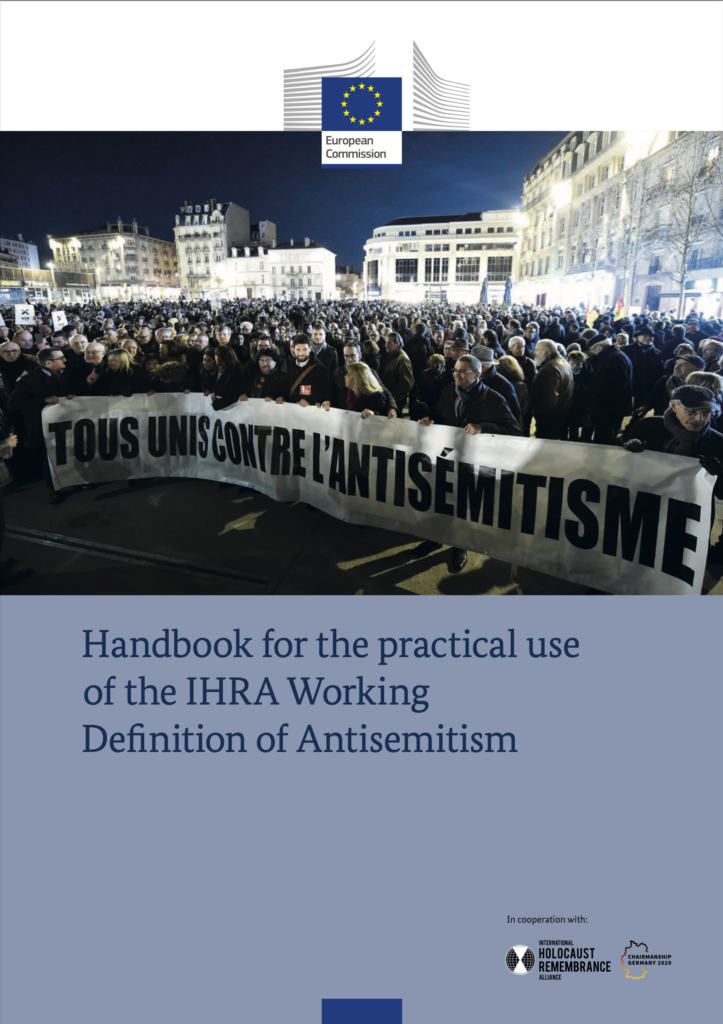EU Handbook for the practical use of the IHRA Working Definition of Antisemitism
Posted on 20 November 2020

The non-legally binding International Holocaust Remembrance Alliance working definition of antisemitism (hereinafter referred to as the IHRA Working Definition of Antisemitism) has become a widely used definition of antisemitism across the world. Since its adoption by the International Holocaust Remembrance Alliance in 2016 to guide the IHRA in its work, dozens of countries, cities, government institutions, universities, civil society organisations and sport clubs have used the definition as a resource in projects that seek to educate on the ways that antisemitism appears, as well as for initiatives focused on recognising and countering manifestations of antisemitism.
Increased use of the definition created the need for guidance and an exchange of practices. This document, commissioned by the European Commission and published jointly with the International Holocaust Remembrance Alliance, with support from the German Presidency of the Council of the European Union, should serve as a practical handbook for the use of the IHRA Working Definition of Antisemitism, by bringing together good practices that are already being employed across Europe.
The purpose of this guidance is:
- to present the IHRA Working Definition of Antisemitism, along with guiding examples, and to relate these to the contexts of real-world antisemitic incidents and crimes;
- to illustrate good practices in the application of the IHRA Working Definition of Antisemitism and
- to offer a checklist for using the IHRA Working Definition of Antisemitism across different policy areas.
Since the adoption of the non-legally binding Working Definition of Antisemitism by the Plenary of the Inter- national Holocaust Remembrance Alliance (IHRA) on 26 May 2016, EU institutions and Member States have increasingly made use of the definition.2 The European Commission began to use it in January 2017 and the European Parliament adopted the IHRA Working Defi- nition of Antisemitism on 1 June 2017 in its resolution on combatting antisemitism. On 6 December 2018, EU Member States unanimously adopted the Council Declaration on the fight against antisemitism and the development of a common security approach to better protect Jewish communities and institutions in Europe, in which the Council “calls on the Member States that have not done so yet to endorse the non-legally binding working definition of antisemitism employed by the International Holocaust Remembrance Alliance (IHRA) as a useful guidance tool in education and training, including for law enforcement authorities in their efforts to identify and investigate antisemitic attacks more efficiently and effectively”.
The call on EU Member States to use the IHRA Work- ing Definition of Antisemitism was reiterated in the “Council Declaration on mainstreaming the fight against antisemitism across policy-areas” adopted under the German Presidency of the Council of the European Union on 2 December 2020.
The European Union Agency for Fundamental Rights (FRA) has begun collecting information from EU Member States on how national, regional and local authorities use or intend to use the IHRA Working Definition of Antisemitism, for its annual reports on Antisemitism – Overview of data available in the European Union.
